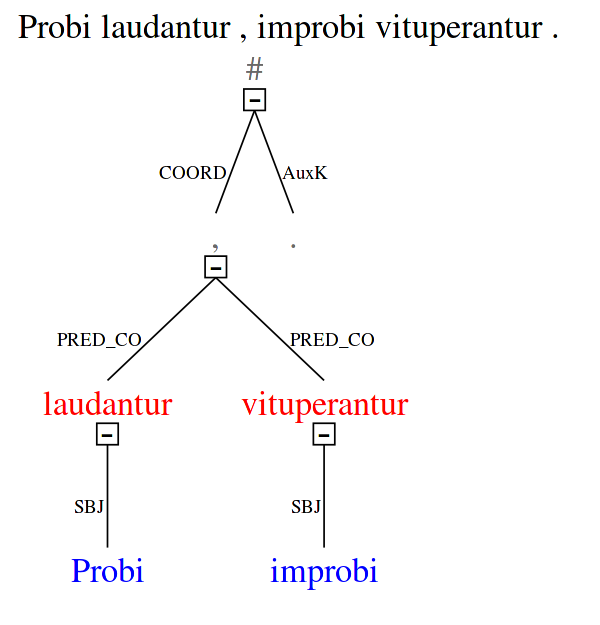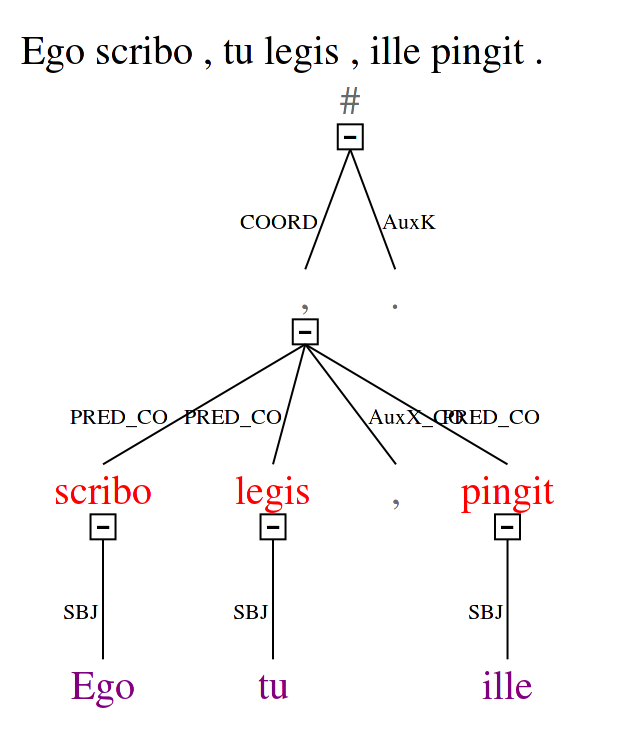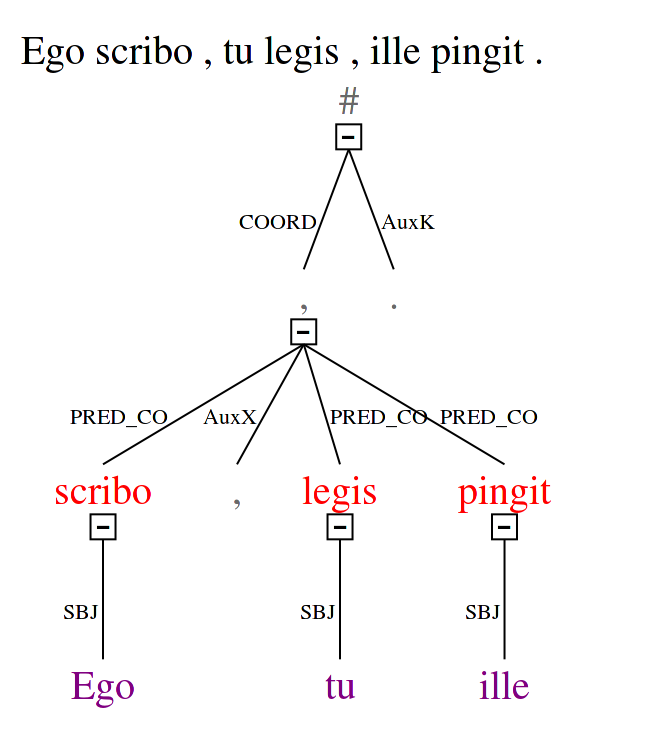Commented examples of Greek and Latin treebanked sentences
Primjeri sintaktičke anotacije grčkih i latinskih rečenica, s komentarima.
Usp. također hrvatski priručnik skola-sintaktickog-anotiranja.
Coordination
Probi laudantur, improbi vituperantur.
This sentence (lifted from the beginning of Raphael Kühner's venerable Ausführliche Grammatik der lateinischen Sprache) has two clauses, but no conjunction. In a dependent syntactical tree, we'll annotate the comma as the root of the sentence, juxtaposed with the final stop.
To achieve this (and to make things clearer), it is better to give interpunction more space:
Probi laudantur , improbi vituperantur .
The “live” annotation can be seen here in the Alpheios treebank repository. And here is the frozen picture:
This is also a reminder that adjectives can be subjects too!
Spot the difference
The sentence seems simple:
Ego scribo, tu legis, ille pingit.
However, annotating it as a dependent syntactical tree isn't completely self evident. First, we want to isolate the interpunction, which also plays a significant role here — because the sentence is asyndetical:
Ego scribo , tu legis , ille pingit .
Now, in case of asyndetical parataxis (several independent clauses stringed together with commas), the root of the sentence is a comma. But which comma?
Compare the following syntactical trees of the sentence:
Root of the sentence is coordination (COORD), embodied by the comma. This comma coordinates three predicates (PRED), which are therefore coordinated predicates (PRED_CO). Each predicate has its subject.
Apart from predicates, the root comma governs another comma (AuxX), which divides other two clauses.
The root comma is hierarchically equal to the final stop (AuxK), which ends the sentence.


